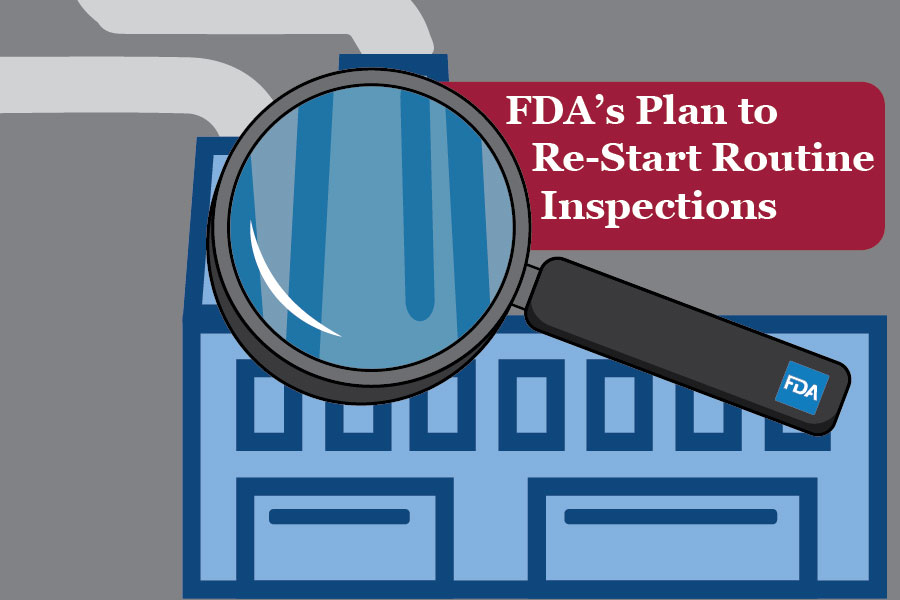Back in March amid the beginning of the COVID-19 pandemic, the FDA announced that in addition to postponing all international inspections, it would also be temporarily halting all domestic routine surveillance inspections. This unusual move by the agency was made to protect the health of all FDA staff and in response to the growing industry concerns about visitors to medical device facilities. Now that we’re halfway through May, the FDA is working with the CDC to develop a process to re-start its inspection program; this process will follow the same criteria outlined in the White House strategy for reopening the US economy.
In a statement from the FDA commissioner Stephen Hahn last Monday, he stated that the process to return to on-site facility surveillance inspections will follow the same gating criteria outlined in the White House Guidelines for Opening Up America Again.1 It will likely follow the same phase-approach methodology and be driven by scientific data surrounding COVID-19 cases per state. Hahn also stated that the agency’s priority and commitment are “to first protect the health and well-being of not only our own highly skilled workforce and state contract inspectors, but also the health of workers in the important industries we regulate.”2
While the agency works towards a cohesive strategy for beginning post-pandemic routine inspections, it is putting heavy reliance on the self-monitoring of medical device firms. The obvious drawback to this is that many firms are facing unprecedented obstacles in the face of COVID-19 and may lack the capacity to comply with regulations during the pandemic. In response to this, the FDA updated a guidance to detail how manufacturers should handle post-market adverse event reporting during the pandemic. The updated guidance not only defines the agency’s expectations and requirements specific to pandemic situations but also recommends the development of a continuity of operations plan (COOP).3 In short, the agency states that adverse event reporting processes as required by regulations should be maintained to the maximum extent possible. If firms are unable to fulfill the requirements defined in the regulations during a pandemic, the guidance outlines what steps should be taken.
While the agency is not quite ready to begin on-site inspections again, they are working diligently towards a plan and an update for the industry. In the meantime, if your medical device firm is unsure how to navigate the FDA’s expectations around inspections or adverse event reporting during the pandemic, EMMA International is ready to help. Our team is keeping up to date on all COVID-19 regulatory policies and are ready to help you during these unprecedented times. Contact us at info@emmainternational.com or call 248-987-4497 to see how we can help.
1CDC/White House (May 2020) Opening Up America Again retrieved on 05/17/2020 from: https://www.whitehouse.gov/openingamerica/
2Hahn, FDA (May 2020) COVID-19 Update: FDA updates on surveillance inspections during COVID-19 retrieved on 05/17/2020 from: https://www.fda.gov/news-events/press-announcements/coronavirus-covid-19-update-fda-updates-surveillance-inspections-during-covid-19?utm_campaign=051120_Statement_FDA%20updates%20on%20surveillance%20inspections%20during%20COVID-19&utm_medium=email&utm_source=Eloqua
3FDA (May 2020) Post-marketing Adverse Event Reporting for Medical Products and Dietary Supplements During a Pandemic retrieved on 05/17/2020 from: https://www.fda.gov/media/72498/download






